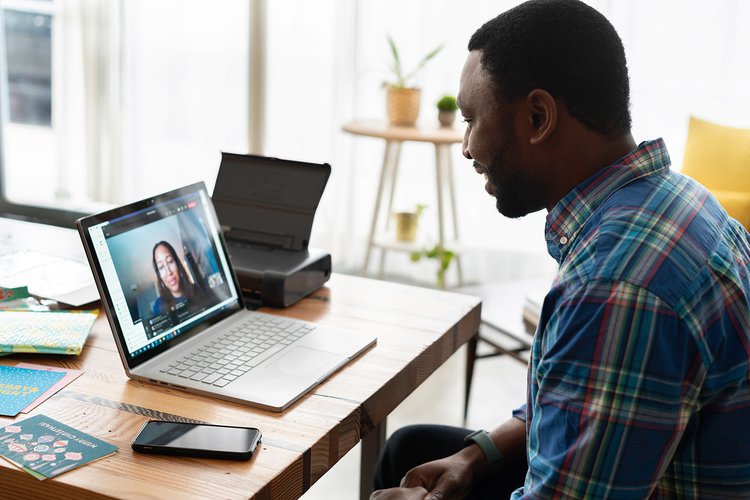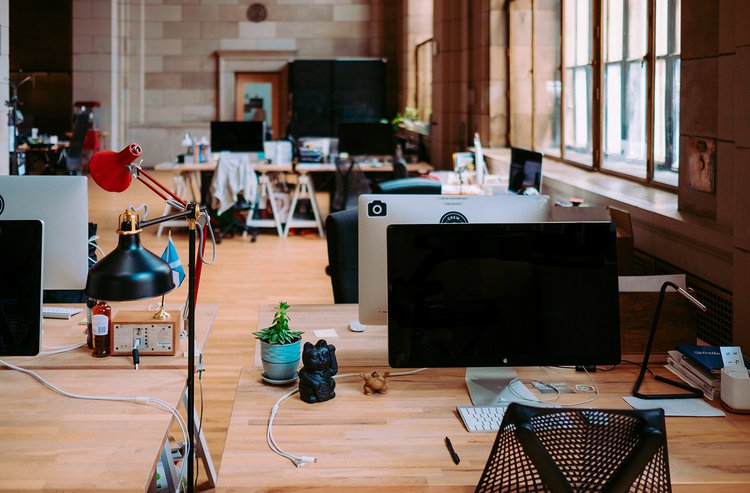Are We Entering an Age of Hybrid Work?

The closure of offices and the shift to working from home during the pandemic accelerated change in the workplace. We're now seeing glimpses of its future development, with companies and their employees beginning to think about new forms of work organization and calling for more remote or hybrid work.
Let's take a closer look at what this could mean for you and your team.
What does a hybrid office look like in practice?
Simply put, “hybrid office” is a term used to describe workplaces where it’s common for employees to work from home (or wherever else they like) and only go to the office if they really need to.
There are some essential prerequisites before this approach starts working correctly, but we need to figure out what’s actually changed before we dive into that.
The way companies view their employees is changing
More and more people are now asking themselves why they even agreed to work for 8 hours a day, 5 days a week. We never questioned things like this a few months ago, but now the whole idea just strikes us as silly.
The pandemic showed that companies can continue to perform exceptionally well even if the employees work from home.
Our need to micromanage people and “keep an eye on them” has proved excessive. We chose to regard our own employees as more dependent and incompetent than they really are. But now, with companies being forced to trust the professionals they hired, they quickly learned that very few failed, and many were able to maintain a high standard of work under these new conditions.

Naturally, new situations require new solutions and, above all, an open mind. We ought to look around and ask ourselves if it’s still possible to bring the old ways back before casting valuable ideas like hybrid work aside.
Knowing that we can do it gives us the drive to move forward
Anyone who discovers that working under these new conditions is better for them will not want to reverse the changes. Of course, it’s also a matter of how far a company is willing to go to get things back to the way they were.
Ultimately, human pride and the desire for self-fulfillment will not allow some people to return, and there will gradually be more and more of them.
This movement is an opportunity for businesses to transform their thinking and start creating a new work environment that’s more profitable and freer for everyone involved. Many companies are already acutely aware of how desperately they need creatives, innovators, and leaders, or in other words, free people who do things out of their own conviction.
These people want a different working environment and a modern way of thinking to go along with it. The hybrid office may just be the next step in creating a freer, more creative working environment for them.

The hybrid office represents a new way of thinking
Imagine a job where you're in control of your own time; no one tells you where you need to be and when. You feel that everything you do makes sense. You agree on your own deadlines for projects, plan meetings with colleagues, and feel at peace during your workday because you're in control.
Sure, it takes independence and responsibility, but it's a personal challenge that offers employees the kind of life they want.
For a company, managing work becomes a question of how to synchronize people instead of controlling them. This approach requires knowing which team members are talking and when rather than forcing them to sit in an office meeting each day. With all that in mind, are you seeing a new perspective here as well?
💡 The Impact on our company and our product
We’ve developed SpockOffice.com, a convenient Slack app that helps small and medium-sized companies with leave tracking through features like approving leaves and notifying teams about attendance.
Working on an app that records employee holidays and home office days at the start of lockdown taught us the importance of proper timing. It made us question our decisions until then, and we began thinking in earnest about how the world’s way of working might change and how we should react to it.
Sure, it’s still foggy right now, but at least it’s evident that the changes are here to stay. Because of this, we see ideas like the hybrid office as an opportunity to understand the coming changes and better respond to them with our product.
In the second part of this article, I will touch on how people’s working hours might change, what it means to synchronize people online and offline, and the importance of having a good company culture in the hybrid office model.